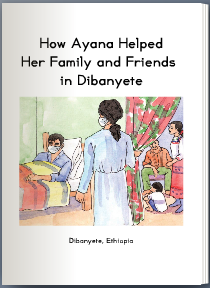(If you arrived here unexpectedly from http://www.fluzoo.info, I apologize. Read on….)
Thanks to all those who have read “Koala’s Flu Zoo” online hundreds of times, and sent comments and suggestions. This shell is in it’s *23rd* draft and is looking great. Unfortunately….
Although this booklet has received kudos from *so many* of you who work in public health, education, epidemiology, etc, I’ve been forced to make a difficult strategic decision: I cannot continue to develop the “Flu Zoo” series for domestic use… at least not for now.
As many of you know, I’ve been working alone– without pay, mostly– since last November, trying to get the Life Access Technology Trust off the ground. A few former employees of Shellbook Publishing Systems– mostly programmers– help me on a very ad hoc basis with Shellbook software updates, server administration, etc. But I’ve been working 12-20 hour days the past several weeks trying to do everything else, and I simply can’t get it all done.
So…. I’m going to focus all my attention on international “access to life-crucial information”. However bad the pandemic might get here, it will likely be much worse in many other parts of the world that will *not* have adequate doses of vaccine.
The Life Access Technology Trust is working with World Vision to help them develop a “Shellbook Resource Adaptation Prototype”, which will launch in October. (More about that in a post later today.) I believe the Trust can fight the H1N1 pandemic far more effectively– and globally– via a strategic alliance with World Vision.
I hope “all is not lost” with Flu Zoo. I’ve offered the project, website, and everything, “lock, stock, and barrel” to a number of people, including someone at the Univ. of Texas School of Public Health who has been involved from the beginning.
Many of you in public health have said “there’s nothing like this” available from CDC or elsewhere for multilanguage health literacy. Great, if CDC (or HHS, or ?) would come through with a relatively small “stimulus” grant, there are plenty of folks you/we could hire who could manage this. The artist is a volunteer, and the Trust would be happy to contribute Shellbook Access software to such a public/private initiative.
Please leave a comment if you have any thoughts, insights or suggestions on this. Or if *you* would like to take over the project! If your comment is for me only, say so, and I won’t post it publicly here on the blog.
